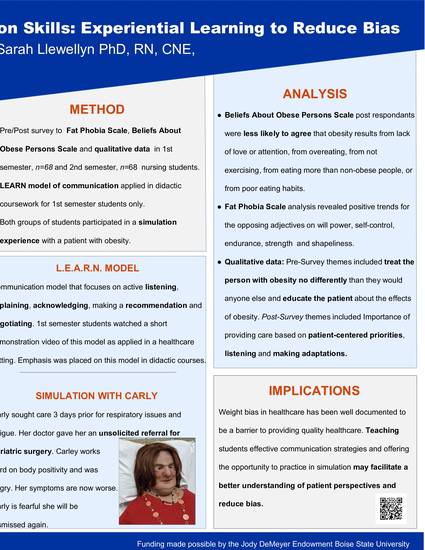
Background: Weight-based bias contributes to disparate health outcomes. Implicit bias of healthcare professionals is a driver in these disparities. The purpose of this study was to evaluate weight bias in baccalaureate nursing students and to determine if interacting with a person who is obese in simulation decreased their weight bias. Design: A single group pretest-posttest parallel convergent mixed-methods design was used. Setting: All participants were baccalaureate nursing students enrolled in their first semester of nursing courses in one university in the western United States. Methods: Participants' attitudes were measured using a survey comprised of the Fat-Phobia Scale, the Beliefs About Obese Persons scale, and open ended questions before and after introduction of a communication tool and simulation experience. Quantitative (t-test and Mann-Whitney U) and qualitative (content analysis) findings were triangulated under the Theory of Cultural Humility. Results: Students’ attitudes trended towards positive attributes, individualized patient-centered care, and cultural humility.
Available at: http://works.bepress.com/kelley_connor/22/
